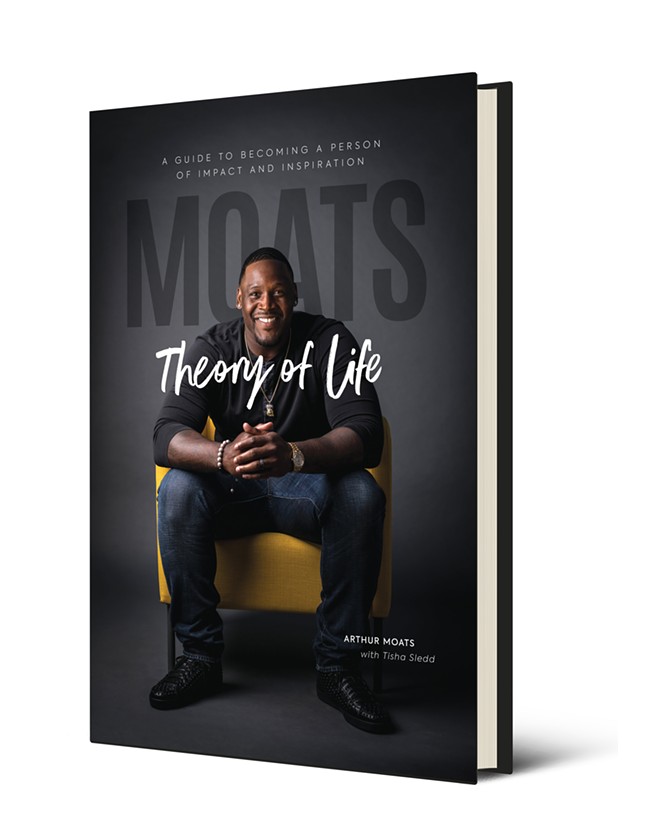At 6 feet tall, 240 pounds during his playing days, former Pittsburgh Steeler Arthur Moats is not easily intimidated. Known for his ferocity and physicality, his tackle of Brett Favre ended the famed quarterback’s streak of 297 consecutive games played in 2010.
But in his book Theory of Life (Leadership League), Moats admits that when Steelers’ coach Mike Tomlin invited him to Pittsburgh on a one-year veteran’s minimum “prove it” deal in 2014, he was fearful.
Was his career over? Should he move to Pittsburgh from Buffalo?
“A lot of people have paralysis through analysis,” Moats says. “They think there’s no way this could be possible, there’s no way this could work out. … With that fear, with that over-analysis, it ultimately works as a blocking force in your life. When you use that fear and put it behind you and use it as a motivational tool, you can say, 'I don’t care what anyone says. If I take this chance and it works, wow, look at what I’m able to accomplish.'”
Moats confronted his fear, flourished in Pittsburgh, and was rewarded with a three-year contract after that first season. Since retiring in 2019, he’s focused on a lifelong passion: improving lives. Theory of Life presents Moats’ five-point plan for better living, based on the first letters of his last name:
Make happiness a priority
Openness yields strength
Actively inspire others
Turn fear into focus
Smile, spread my inner love everywhere
Moats’ approach stems from his childhood. Born and raised in the Tidewater region of Virginia, his parents, both ministers, instilled in him a sense of duty to others. He quickly acknowledges that was an ideal situation, and today, “not a lot of children grow up with both of their parents together,” he says. “There are a lot of blended families, a lot of separated families and single parent households.”
That’s why he insists it’s increasingly important for adults to reach out to children in these situations.
“Whether it’s an uncle or other family member, it’s important to have someone who you are looking to for advice and direction,” Moats says.
Throughout the book, Moats quotes leaders who have inspired him, including Hellen Keller, Rosa Parks, Booker T. Washington, Paulo Coelho, Dr. Joyce Brothers, Lao Tzu, but not a single athlete.
However Moats has never approached anything in his life with a typical view. And while each of the planks in M.O.A.T.S. is important, he’s especially committed to actively inspiring others.
“A lot of people think you have to have a lot of money or be successful or have a lot of platforms to be inspirational,” Moats says. “But that’s not the case. Inspiration comes from you instilling a belief in somebody. It’s just you noticing what they are doing, telling them they’re doing a good job and to keep it up, or telling a kid, 'I know you’re struggling right now, but we all go through this.’ It costs you nothing. I think when people understand [how simple it is] they’ll be more active in their inspirational roles.”
















